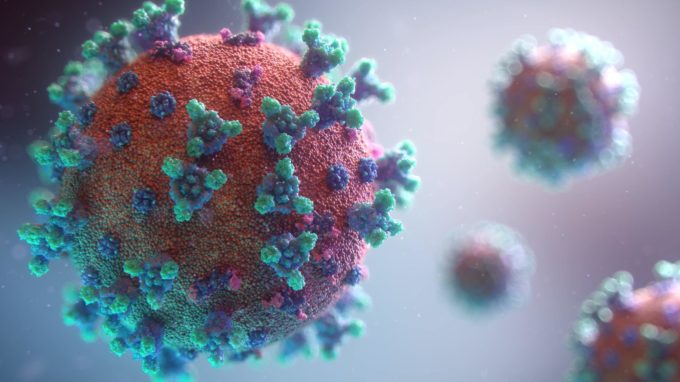Complaint, Allele Biotechnology and Pharmaceuticals, Inc. v. Regeneron Pharmaceuticals, Inc. (S.D.N.Y. Oct. 5, 2020) (No. 7:20-cv-08255), complaint hosted by bloomberglaw.com;
Complaint, Allele Biotechnology and Pharmaceuticals, Inc. v. Pfizer, Inc., BioNTech SE, and BioNTech US, Inc. (S.D. Cal. Oct. 5, 2020) (No. 3:20-cv-01958-GPC-AHG), complaint hosted by courtlistener.com.
Earlier this month, San Diego-based Allele Biotechnology and Pharmaceuticals, Inc. (“Allele”) filed suits alleging patent infringement by three companies racing to develop COVID-19 countermeasures. Regeneron, Pfizer, and BioNTech are each charged with directly infringing on U.S. Patent No. 10,221,221, assigned to Allele. The patent covers monomeric fluorescent proteins, coined “mNeonGreen,” that are “among the brightest known in [their] class and have exceptional utility as a biomarker and/or protein fusion tag.”
According to Allele’s complaint filed in the Southern District of New York, Regeneron used mNeonGreen while creating its COVID-19 “antibody cocktail,” the same therapeutic given to President Trump after he contracted the disease. Allele’s other complaint, filed in the Southern District of California, accuses BioNTech and Pfizer of also employing mNeonGreen while developing their BNT162 COVID-19 vaccine, which is currently in Phase 3 clinical trials. In both cases, Allele claims that incorporating mNeonGreen into the SARS-COV2-19 viral genome has been crucial in allowing Regeneron, Pfizer, and BioNTech to test the viability of their COVID-19 countermeasures. In neither case has mNeonGreen been licensed by Allele.
Allele’s lawsuits will almost certainly have no impact on the pace of COVID-19 countermeasure development. Notably missing from Allele's complaints are demands for equitable relief, and it is unlikely that Allele will seek an injunction anytime in the near future. Merely slowing down the development of COVID-19 countermeasures would invite the sort of negative publicity that most companies want to avoid. In fact, Allele asserts in its complaint against Regeneron that it has been willing to license mNeonGreen so that “essential technologies” can be developed. Jiwu Wang, the company’s founder and CEO, has made clear that “in no way does Allele want to prohibit, or slow down development of vaccines or therapeutics discovered using this technology.”
Allele’s demands for damages, on the other hand, set the stage for an issue new to intellectual property litigation. Commentators have noted that the pandemic might occasion a novel (and, perhaps, non-obvious) defense to patent infringement: immunity from liability under the Public Readiness and Emergency (“PREP”) Act, 42 U.S.C. § 247d-6d.
Passed by Congress in 2005, the PREP Act grants immunity to “covered persons” from “all claims” for “any type of loss” related to the use or administration of a “covered countermeasure” during a declared public health emergency. Because the Secretary of Health and Human Services invoked the PREP Act early into the pandemic, Regeneron, Pfizer, and BioNTech might claim that the Act shields them from any patent infringement liability while developing COVID-19 countermeasures. But whether that defense would hold any water is murky.
The PREP Act’s language clearly reflects an intent to confer broad immunity from many torts to manufacturers such as Regeneron, Pfizer, and BioNTech. And there’s no question that patent infringement is a form of tort. Less clear, however, is whether any of the companies’ research activities are alone sufficient to trigger the Act’s shield. A natural reading of the PREP Act supports a grant of immunity from torts arising from the use of the companies’ COVID-19 countermeasures, not their development. What’s more, a non-binding advisory opinion issued by the Department of Health and Human Services takes the position that the PREP Act’s immunity extends only to a “claim for personal injury or damage to property.” The opinion undercuts arguments that infringement upon intellectual property rights are immunized by the Act because damages for infringement are based on reasonable royalties and lost profits, not on damage to the patent itself.
Allele’s claims might prompt a case of first impression for the courts. But that’s only if settlements and licensing agreements aren’t hammered out first.
